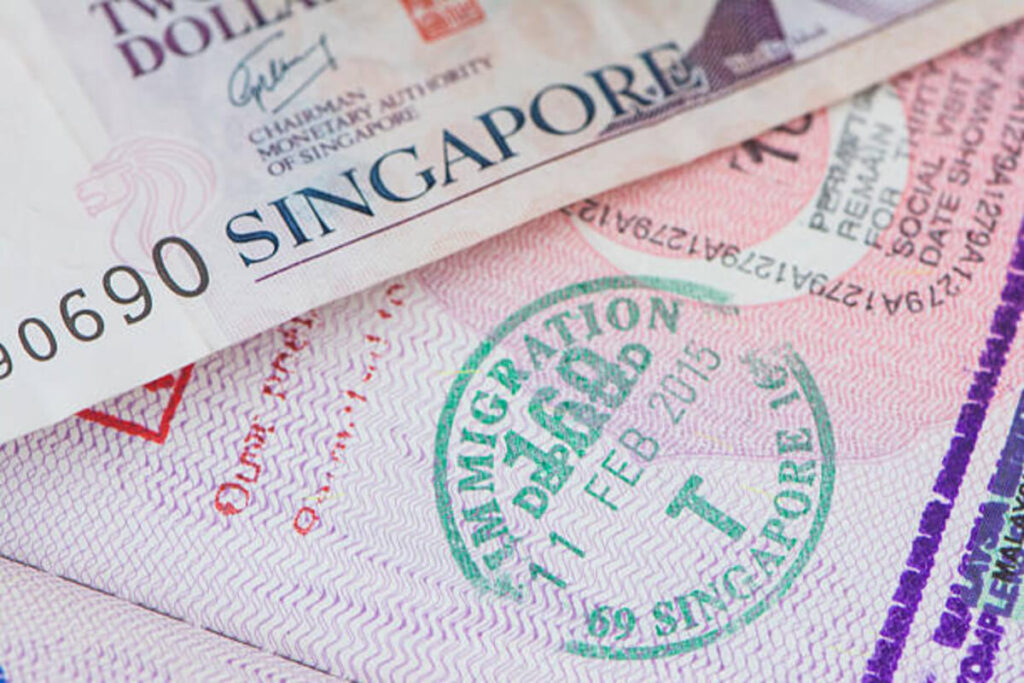Maximizing your chances of immigration success requires careful planning, attention to detail, and a clear understanding of the requirements set by the immigration authorities of your desired country. Immigration can be a complicated and lengthy process, but with the right preparation, you can significantly improve your odds of success. From gathering the correct documentation to ensuring you meet eligibility criteria, every step is crucial.
Advertisement
Let me guide you through the essential strategies to optimize your application, including how to improve your qualifications, enhance your language skills, and stay informed about changes in immigration policies. By following these practical steps, you can increase your chances of a smooth and successful immigration experience.
Understand the Requirements for Your Chosen Destination
Researching the immigration requirements for your target country is the first step to ensuring a successful application. Each nation has its own specific immigration laws that differ based on factors such as visa type, residency programs, or citizenship. Knowing the requirements for things like your age, health, financial status, and education can help avoid wasting time on a visa you’re not eligible for.

Be sure to check official government websites or consult with immigration authorities to ensure you’re following the most current and relevant guidelines for the visa category you’re interested in.
- Research immigration laws and policies of your desired country. Every country has its own rules and regulations that govern immigration. Start by thoroughly reviewing these guidelines. For example, check if you need to meet certain age, health, or financial requirements.
- Identify the type of visa you need. Understand whether you are applying for a student visa, work visa, permanent residency, or any other category.
- Know the process for your specific immigration pathway. Some visas require sponsorship, while others might involve self-sponsorship, investment, or employment.
Read: Top 5 USA Visas Types You Can Get Without Needing Employer Sponsorship
Ensure You Meet All Eligibility Criteria
Before applying for any immigration program, it’s crucial to understand and confirm that you meet all eligibility criteria. Immigration laws vary by country and visa type, often requiring specific qualifications like age, work experience, education level, and language proficiency. Failing to meet even one requirement can lead to rejection.
Carefully review all the conditions on official immigration portals and make sure you meet them. Prepare all supporting documents such as your educational certificates, work experience, and language test results, as missing documents could delay your application or result in disqualification.
- Check eligibility criteria carefully for age, education, work experience, language proficiency, and any other requirements. Missing a single criterion could result in your application being rejected.
- Prepare your documents in advance. Gather proof of education, work experience, financial status, language proficiency, and health records as required by the immigration authorities.
Improve Your Language Skills
Language proficiency is an essential factor in the immigration process for many countries. Most countries require proof of language skills through tests like IELTS, TOEFL, or other standardized exams. Improving your language skills can significantly increase your chances of success in both the visa application and integration into the new country.
Consider enrolling in language courses to prepare, and practice speaking, reading, writing, and listening to achieve the required score. Additionally, language proficiency may affect your chances of employment and social integration once you’ve successfully immigrated.
- Language proficiency is a critical factor in many immigration processes. Most countries require proof of language skills (such as English or French) through standardized tests like IELTS, TOEFL, or others.
- Invest time in learning the language to improve your chances. Practice reading, writing, speaking, and listening to ensure you score well in language proficiency tests.
Work on Building a Strong Application
Your immigration application should be thorough, accurate, and well-prepared. Incomplete or incorrectly filled forms are common reasons for delays or rejections. Double-check all details, such as names, dates, and other personal information, before submission.
Ensure that you include all necessary supporting documents like academic records, job offers, financial statements, and any certificates required by the immigration authority. A well-organized and clear application shows you are serious and committed to the process, making a positive impression on the authorities reviewing your case. Attention to detail can go a long way.
- Complete forms correctly: Ensure all application forms are completed accurately and completely. Mistakes or missing information can delay the process or cause rejection.
- Provide supporting documents: Your application should include all required documentation. This could include your educational qualifications, job offers, proof of finances, family details, etc.
- Double-check your application: Review all your application materials before submitting to avoid simple errors that could harm your chances.
Seek Expert Guidance (Optional but Beneficial)
While immigration laws are accessible, the process can be complex, especially for individuals applying under specific programs or challenging circumstances. Seeking advice from an immigration lawyer or a certified consultant can help you navigate the process smoothly. These experts can help ensure that your application is complete, valid, and in compliance with the law.

They can also provide advice on overcoming potential obstacles such as visa denials or legal requirements. While it’s not mandatory, consulting professionals can help save you time, avoid costly mistakes, and boost your chances of success.
- Consult an immigration lawyer or expert: While not mandatory, consulting an immigration expert or lawyer can be helpful, especially if the immigration process is complex.
- Work with immigration consultants: They can guide you through the process and ensure you avoid common mistakes.
Raed: How I Moved to the USA Without a Job Offer – My Exact Process
Stay Updated on Immigration Policies
Immigration laws and policies frequently change, and staying informed is vital. Even small changes can impact your eligibility or the steps needed to complete your application. Government websites, official immigration portals, and professional newsletters are excellent resources for receiving updates. Additionally, sign up for notifications from local embassies or consulates to be alerted about any major changes that could affect your immigration status or application process. Staying current ensures you don’t miss important deadlines, document requirements, or opportunities that can increase your chances of approval.
- Immigration laws can change. Policies that were in effect last year might no longer apply today. Stay updated with news from official government websites and immigration-related resources.
- Sign up for immigration newsletters or alerts to get the latest updates and insights.
Be Ready to Adapt to Changes
Immigration processes are often fluid, and changes can occur unexpectedly. These may include policy shifts, delays in processing times, or additional documentation requests. It’s essential to stay flexible and adaptable. If immigration authorities request additional documents, respond quickly with the required materials.
Also, if there are any adjustments to visa or residency programs, keep your application in line with these changes. Proactively monitor any updates, and be ready to adjust your strategy or submission accordingly. A responsive approach can show the authorities your commitment and willingness to comply.
- Immigration requirements might change mid-process. Be flexible and prepared to submit additional documents or undergo additional steps if required.
- Stay proactive: If there’s a change in the law or a policy update, act quickly to adjust your application as needed.
Demonstrate Financial Stability
One of the key factors in many immigration processes is proving you can financially support yourself and your dependents. Immigration authorities want to ensure that you won’t become a financial burden on the country. Show proof of your financial stability by submitting documents such as bank statements, tax returns, pay stubs, or proof of employment.
Some countries require a specific minimum amount of funds in your account, so it’s important to have enough resources before applying. A well-documented financial record assures the authorities of your ability to settle and live independently in the new country.
- Many countries require proof that you can financially support yourself (and your family, if applicable) while living there.
- Maintain good financial records: Keep your bank statements, tax returns, and any other proof of financial stability readily available.
- Consider hiring a financial consultant if necessary to help you structure your finances to meet immigration requirements.
Be Patient and Persistent
Immigration processes are often lengthy, involving multiple stages, checks, and reviews. You may face delays or long waiting periods, but persistence and patience are crucial. Avoid rushing through the process, as this can lead to errors or overlooked details. Keep track of your application status and follow up if necessary, but remain patient while awaiting responses.
If your application is delayed or rejected, don’t be discouraged. Often, applicants can appeal or reapply with the necessary improvements. Persistence in staying engaged with the process, even during waiting periods, is key to success.
- Immigration processes often take time. Be patient and prepare for delays in processing times.
- Follow up regularly with the relevant authorities, but don’t overwhelm them with constant inquiries. Patience is key.
Prepare for Life After Immigration
Once your immigration application is successful, the real work begins: adapting to life in your new country. Research the housing market, healthcare options, and employment opportunities to ensure a smooth transition. Many countries offer settlement services to help immigrants get started, such as orientation programs or language courses.

Understanding cultural norms, local laws, and community resources is also essential for integrating successfully. Preparing for life beyond the paperwork will not only ease your transition but also set you up for a fulfilling and long-term stay in your new country.
- Once your immigration application is successful, plan for life in the new country.
- Research housing, healthcare, and job opportunities in your new country to ensure a smooth transition.
- Understand the culture: Immigrants often find it helpful to familiarize themselves with the local culture, norms, and practices to ease their adaptation process.
Read: USA Immigration Update 2025: New Rules You Need to Know Before You Apply
Maximizing your chances of immigration success involves thorough research, meeting eligibility requirements, and ensuring your application is complete and accurate. Focus on improving language skills, maintaining financial stability, and staying informed about immigration policy changes. Seeking professional guidance and staying adaptable to any process changes can also boost your chances. By being organized, patient, and proactive, you can significantly increase your likelihood of a successful immigration application.


